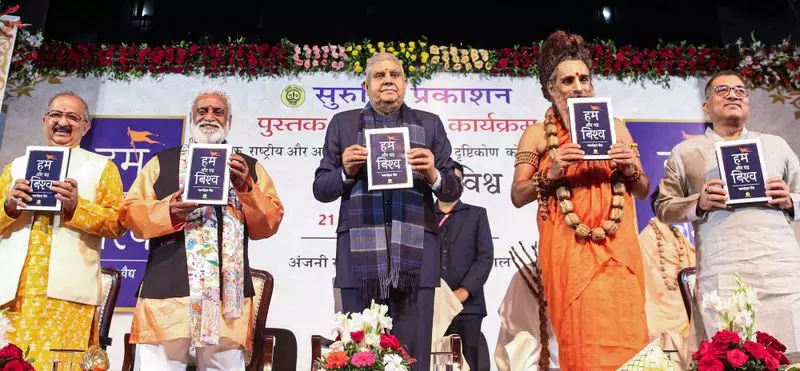
In his first major public appearance since stepping down as Vice President of India, Jagdeep Dhankhar delivered a significant speech where he openly praised the philosophy of the Rashtriya Swayamsevak Sangh (RSS). The event marked a notable moment in Indian politics as the former vice president shared his perspectives on governance and national values.
Historic Address in Nagpur
The event took place on Saturday in Nagpur, Maharashtra, where Dhankhar was attending a program organized by the Nagpur Union of Working Journalists. This was his first public speech after completing his term as Vice President and Chairman of the Rajya Sabha, making his comments particularly noteworthy in political circles.
During his address, Dhankhar expressed his admiration for the RSS, stating that the organization's philosophy deeply resonated with him. He emphasized that the RSS's approach to nation-building and social harmony aligned with constitutional values, creating a powerful combination for India's development.
Constitutional Values and National Development
Dhankhar highlighted the importance of constitutional principles in his speech, noting how they form the foundation of India's democratic system. He connected these values with the RSS's ideological framework, suggesting that together they create a comprehensive approach to national progress.
The former vice president specifically mentioned how the current government's policies reflect this synergy between constitutional democracy and organizational philosophy. He praised the government's initiatives and their impact on various sectors, emphasizing the positive changes witnessed across the country.
Political Significance and Timing
The timing of Dhankhar's speech carries substantial political weight, coming shortly after the conclusion of his constitutional role. Political analysts view this as a significant development, given that such open appreciation for the RSS from a recently retired high constitutional authority is relatively uncommon.
Dhankhar's remarks are particularly important as they come during a period of intense political activity in the country. His endorsement of the RSS philosophy while addressing journalists adds another dimension to the ongoing political discourse.
The former vice president's speech in Nagpur, which serves as the headquarters of the RSS, further underscores the symbolic importance of his statements. His words are likely to influence political conversations and interpretations across different quarters.
Throughout his address, Dhankhar maintained that his appreciation for the RSS stemmed from his observation of their work and philosophy over time. He emphasized the organization's commitment to national unity and social service, qualities he believes are essential for India's continued progress.
The event attracted significant attention from political observers and media professionals, who see this as an important moment in understanding the evolving political landscape and the relationship between constitutional authorities and ideological organizations in India.






